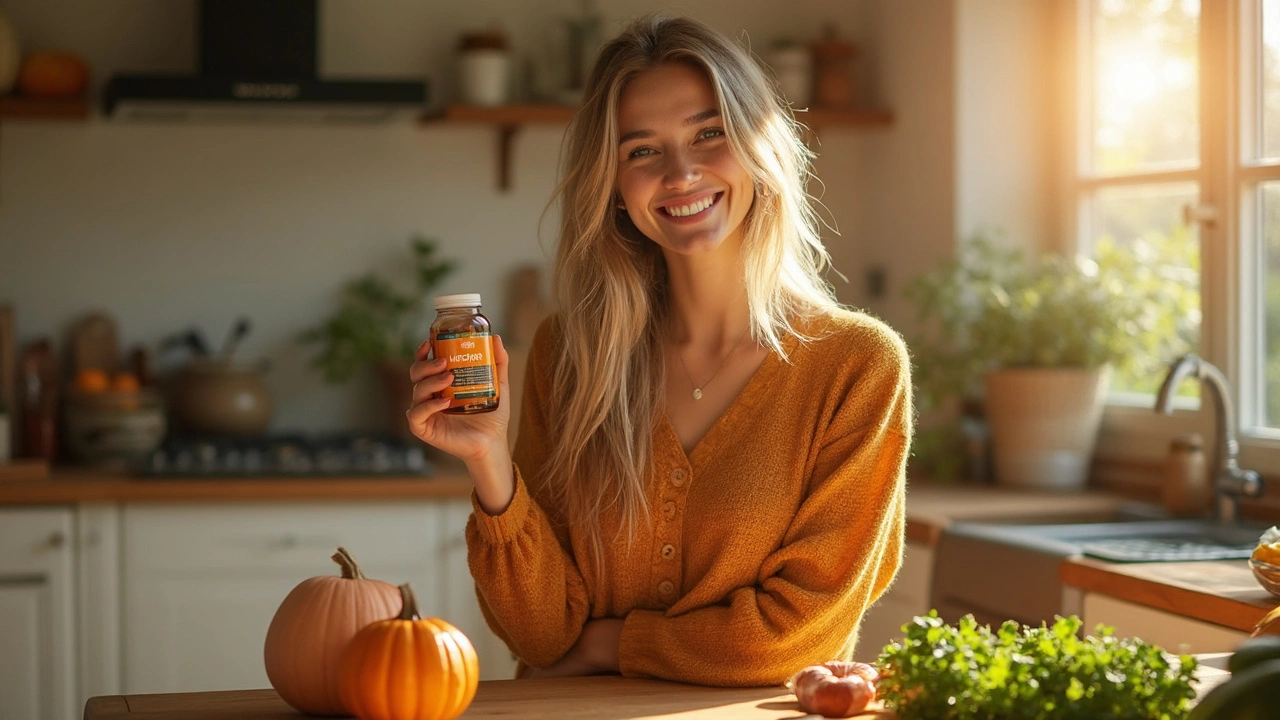Pumpkin Nutrition: What a Pumpkin Gives You
One cup of cooked pumpkin can give you more than 200% of your daily vitamin A — yes, pumpkin is that powerful. If you want a simple, cheap food that helps your eyes, skin, and immune system, pumpkin should be on your list. Below I’ll break down what’s actually in pumpkin, why it matters, and how to use it without wasting time or flavor.
Nutrient Breakdown
Cooked pumpkin (about 1 cup) is low in calories — roughly 50 calories — and high in fiber, which helps you feel full. The star is beta-carotene, a plant pigment that turns into vitamin A in your body. That supports vision and immune function. Pumpkin also supplies vitamin C, potassium, and some iron and magnesium. If you eat pumpkin seeds, you add protein, healthy fats, zinc, and extra magnesium. Seeds are especially good if you want to boost muscles, sleep quality, or testosterone support.
Here are some concrete numbers to keep in mind: one cup of cooked pumpkin gives a big dose of vitamin A, a decent amount of fiber (2–3 grams), and under 1 gram of fat. A 1-ounce serving of roasted pumpkin seeds adds about 7 grams of protein and 13 grams of fat, mostly unsaturated. That combo — low-calorie flesh plus nutrient-dense seeds — makes pumpkin a flexible, healthy choice.
Practical Uses & Tips
Want pumpkin in your routine? Swap mashed pumpkin for half the butter in baked goods to cut calories and add nutrients. Stir pumpkin into oatmeal or yogurt for texture and sweetness without added sugar. Pureed pumpkin works great in soups and smoothies. Roast wedges with olive oil, salt, and pepper for a simple side dish.
Roast the seeds: rinse, dry, toss with a little oil and salt, and bake at 300°F for 20–30 minutes. They’re an easy snack to add protein and crunch. If you buy canned pumpkin, check the label — pick 100% pumpkin, not pumpkin pie mix, which often contains sugar and spices.
Storage tip: whole pumpkins last 2–3 months in a cool, dry place. Once cut, store in the fridge for up to a week or freeze puree in portions for 3–6 months. Canned pumpkin is a convenient backup for recipes and lasts a long time unopened.
Who benefits most? Anyone needing more vitamin A, fiber, or plant-based nutrients: kids, older adults, athletes, and people aiming to lose weight. Watch out if you have to limit potassium — pumpkin adds a meaningful amount. Also, pumpkin alone won’t fix a poor diet, but it’s an easy swap that raises nutrient quality without extra effort.
Bottom line: pumpkin is cheap, versatile, and nutrient-packed. Use the flesh for vitamins and fiber, and keep the seeds for protein and minerals. Simple swaps—like adding pumpkin to oatmeal or baking—give real health gains without complicated recipes.
Pumpkin dietary supplements are gaining serious attention for their powerful health benefits and natural wellness-boosting qualities. This article unpacks what makes pumpkin-based supplements stand out, how they improve different areas of your health, and the science behind their nutrition. Get practical tips for choosing the right supplement and see why pumpkin is way more than a fall favorite. If you're ready for a simple, proven way to upgrade your diet, this is where you start.

